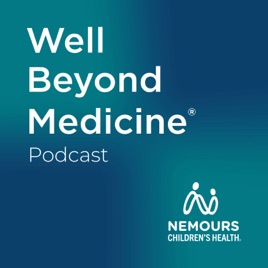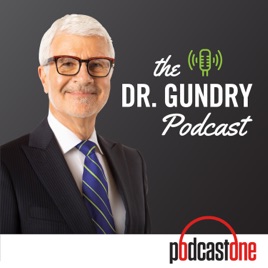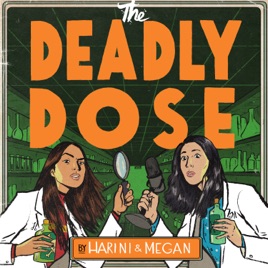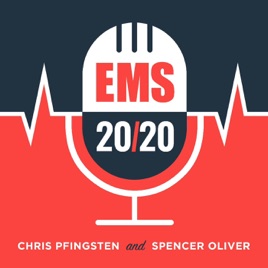
Advertise on podcast: The Resus Room
Rating
4.7 from
Country
This podcast has
230 episodes
Language
Publisher
Explicit
No
Date created
2016/03/04
Average duration
44 min.
Release period
14 days
Description
Emergency Medicine podcasts based on evidence based medicine focussed on practice in and around the resus room.
Social media
Check The Resus Room social media presence
Podcast episodes
Check latest episodes from The Resus Room podcast
Refractory VF; Roadside to Resus
2024/02/14
As we all know, rapid and effective resuscitation makes a huge difference to the chance of survival from a cardiac arrest.
If you’re going to pick a rhythm to have as the patient or as the Resuscitationist, then it’s going to be a shockable rhythm, so VF or pulseless VT as they hold the greatest chance of survival. You'll find an initial shockable rhythm in around 20% of cases & defibrillation alone may lead to a ROSC. So it’s absolutely imperative to get the immediate management spot on!
Whilst current practice is good, there are some aspects of care that we can improve on and make a real difference to outcomes in these patients, with those first on scene or at the bedside in a phenomenally important position to deliver life saving care.
In this episode we’ll be talking predominantly about refractory VF but the strategy will transfer to how we can also deal with refractory VT cardiac arrests.
We'll be running through all of the following;
VF incidence Mechanisms behind VF Refractory and recurrent VF Defibrillation strategies Pharmacological strategies PCI in arrest ECMO Once again we’d love to hear any thoughts or feedback either on the website or via X @TheResusRoom!
Simon, Rob & James
more
February 2024; papers of the month
2024/02/01
Welcome back to February's papers of the month.
Syncope is a really common presentation to the Emergency Department and it can be complicated to tease out those with a concerning precipitant from the others with a more benign cause. The first paper gives us some context to the management of these undifferentiated syncopes and provides a barometer for how stringently ESC guidance on the topic is followed.
Next up we take a look a huge RCT of transfusion thresholds in patients presenting with a myocardial infarction. Should we be restrictive in our approach, saving a valuable resource, or is it validated to transfuse more liberally in terms of the patients outcome?
Finally we take a look at a paper looking to tease out the predictors of post intubation hypotension in those getting a prehospital anaesthetic following trauma, with some interesting associations and factors to looks out for.
Once again we’d love to hear any thoughts or feedback either on the website or via X @TheResusRoom!
Simon & Rob
more
Paediatric Fever; Roadside to Resus
2024/01/15
Fever is an incredibly effective mechanism to fight off pathogens.
Clearly, whilst many illnesses that cause a fever don’t require anything more than the body’s natural response, there are some patients in which a fever might represent a serious illness. Differentiating those serious illnesses from self-limiting presentations can be tricky at times, but can also be anxiety provoking for clinicians and parents, or carers of that child.
In children the limited communication can make the diagnostic challenge of the origin of the fever a real challenge, along with the added difficult of gaining some tests. Differentiating those with a benign disease from those with a life threatening presentation can be a daunting challenge.
The numbers of presentations to healthcare providers are staggering. Paediatric fever has been reported to represent as high as 15-25% of all presentations in primary care and emergency departments, so massive numbers. Thankfully the prevalence of serious infections in children is low and is estimated at So we thought with this common but tricky presentation that it was about time we tackled the topic. We'll be running through;
A definition Patholphysiology Relevance of the severity of the fever Febrile seizures Clinical assessment NICE guidelines Duration of fever Management Antipyretics Once again we’d love to hear any thoughts or feedback either on the website or via X @TheResusRoom!
Simon, Rob & James
more
January 2024; papers of the month
2024/01/01
Happy New Year!
We've got some great topic and in person events lined up for 2024 which we'll be able to share some more details about with you soon.
This month we look at an RCT of conservative airway management in patients with a low GCS following presentation with acute poisoning.
Next up we take a look at paper reviewing our diagnostic ability with dissociative seizures; this gives us some really valuable signs and symptoms to looks for and outlines how we can improve with these presentations.
Lastly we look at prognostic scores following out of hospital cardiac arrests with a study that compares four different scores. If reliable they have significant scope to help us to both prognosticate and give valuable information to family and loved ones on their presentation to ED.
Once again we’d love to hear any thoughts or feedback either on the website or via X @TheResusRoom!
Simon & Rob
more
Caring in a Broken System; Roadside to Resus
2023/12/14
We know it's the festive season but we thought we’d try and cover an issue from which there appears to be no escape and is a particular problem at this time of year, queuing!
Whether we like it or not, this has become a factor for all of us working in emergency care, whether its delays getting your patient into the department, queueing down the corridor into ED, a prolonged stay in ED for an appropriate ward, or even in a physical queue to get out of the ED and onto an appropriate bed!
We are looking after our patients for significantly longer than we’re used to and this pushes the patient and the clinician into an area of care in which we have limited experience and comfort.
Rather than accepting delays and ignoring their inevitable impact on patient care, we need to move towards equipping ourselves with the skills and knowledge to fill that care vacuum and ensure that excellence in patient care continues throughout their time with the ambulance service.
So with that in mind, in this episode we’re going to think about some of the considerations and interventions that are required to ensure our patients remain safe and comfortable throughout their queueing experience. And to do that we’re going to draw on the concept of prolonged field care.
An article by Aehbric O’Kelley and Tom Mallinson recently authored a paper published in Journal of paramedic practice entitled “Prolonged field care principles in UK paramedic practice”. That article really provided the idea and stimulus for this episode, so thanks to them for all of the hard work and once you’ve listened to us waffle on you should head across to their paper for a far more eloquent explanation of it all!
Once again we’d love to hear any thoughts or feedback either on the website or via X @TheResusRoom!
Simon, Rob & James
more
December 2023; papers of the month
2023/12/01
We've talked about Aortic Dissection before in our Roadside to Resus episode and the huge difficulties in picking out these rare but potentially devastating cases and this month we've got a fantastic paper on the topic! The DAShED study looks at patients presenting with symptoms that could be suggestive of aortic dissection and helps us understand the diagnostic challenge and approach to acute aortic syndrome, along with testing the characteristics of a number of decision tools.
Next up we look at a paper from Bendszus, an RCT of medical versus thrombectomy and medical treatment for acute ischaemic strokes with a large infarct, with some really powerful results.
Finally we look at a paper that shows some staggeringly different ROSC rates for patients in cardiac arrest depending on the size of the ventilation bag used!
Once again we’d love to hear any thoughts or feedback either on the website or via X @TheResusRoom!
Simon & Rob
more
Blood gases; Roadside to Resus
2023/11/15
Blood gases are really commonly used in ED, Critical Care, Respiratory Medicine and Prehospitally. In fact, you’d do well to walk 10 meters in an ED without being given one to sign off! But it’s for good reason, because they give you additional information about what’s going on from a respiratory and metabolic perspective in the patient.
And it’s probably worth mentioning at this point, this episode is going to be pretty ‘science-heavy’, there should be something in here for everyone; from the clinician that's been looking at these things for the last 30 years, to those that haven't started interpreting gases.
So arterial blood gases can tell you about the efficacy of the patients ventilation in terms of their partial pressures of oxygen and carbon dioxide levels and also from a metabolic perspective about other disorders of their acid-base balance.
In the episode we'll be covering the following;
-Overview of blood gases
-Respiratory & metabolic sides of the gas
-Acidaemia
-Alkalaemia
-Bicarbonate or base excess?
-Compensation
-Oxygenation
-Anion gaps
-System of interpretation
-Venous gases
-Clinical application & examples of interpretation
We'll be referring to the equation listed on our webpage, so make sure you go and have a look at that and all the references listed.
Once you've listened to the podcast make sure you run through the quiz below to consolidate the concepts covered with some more gas examples and of course get you free CPD certificate for your TheResusRoom portfolio!
Once again we'd love to hear any comments or questions either via the website or social media.
Enjoy!
Simon, Rob & James
more
November 2023; papers of the month
2023/11/01
Well this has been a huge month for Emergency Medicine and Critical Care in terms of papers!
We start off looking at REBOA; many resuscitationist's favourite concept or device with the much awaited UK-REBOA trial. What does the paper mean for practice in our Resus Rooms? Is this about to become a key part of trauma management? The paper is fascinating and one of the most though provoking we've discussed in a while.
Next up we look at CROYSTAT-2, another such anticipated trial looking at whether survival could be improved by administering an early and empirical high dose of cryoprecipitate to all patients with trauma and bleeding that required activation of a major hemorrhage protocol.
Finally we look at a paper which describes a taxonomy of key performance errors in intubation and may inform our review and improvement of intubation in the ED.
Once again we’d love to hear any thoughts or feedback either on the website or via X @TheResusRoom!
Simon & Rob
more
Spontaneous Pneumothorax; Roadside to Resus
2023/10/16
In this episode we’re going to cover the ‘atraumatic’ or ‘spontaneous’ pneumothoraces and focus on some new key guidelines from the British Thoracic Society which came out in July this year and also look at the relevant evidence on the topic.
There are pretty significant changes in the BTS guidance, it’s no longer about finding a pneumothorax, working out if it’s primary or secondary and then acting dependant on the size. It's now moved more towards looking at how the patient is clinically, taking into account the symptomatology, any big risk characteristics, whether it’s primary or secondary and then thinking about the patients wishes and priorities and nuancing the management plan towards those.
This episode builds on some of the concepts we discussed in our Traumatic Pneumothorax podcast, so make sure you give that one a listen before clicking play on this one!
We'll be looking at the presentation, evidence, management and follow up, along with some trials that you can get involved in to help develop practice even further.
Once again we'd love to hear any comments or questions either via the website or social media.
Enjoy!
Simon, Rob & James
more
October 2023; papers of the month
2023/10/01
Welcome back!
This month we kick off looking at an RCT which looks at whether we should convey patients with a ROSC from a likely cardiac cause (without a STEMI in their ECG) to a cardiac arrest centre, or whether they would be as well served at their local Emergency Department. This paper has huge potential implications for service design for cardiac arrest patients.
Next up we look at another RCT evaluating if patients with a suspected uncomplicated appendicitis who have urgent surgical intervention benefit in terms of a reduced perforation rate, when compared with those who have surgery within 24 hours.
Lastly we take a look at the use of bicarbonate, calcium and magnesium in cardiac arrest and see if there use is supported in a huge cardiac arrest registry.
Once again we’d love to hear any thoughts or feedback either on the website or via X @TheResusRoom!
Simon & Rob
more
End of Life Care; Roadside to Resus
2023/09/19
Delivering excellent End of Life Care in the Emergency Care is a real challenge but also a huge privilege and has formed some of the most rewarding parts of our careers to date.
We've been really keen to End of Life Care as a topic for a while now. Many, if not all of you, will have been out to these patients or received them in your ED.
They aren’t simple cases to manage, with lots of issues around scope of practice, lack of alternative care pathways, confusion surrounding legal documentation and many studies have identified a lack of education around palliative care.
In this episode we’ll do our best to demystify those medico-legal terms, talk about care pathways and options that may be available to us, have a think about how we can talk with patients about death and then go on to discuss the clinical care we might need to deliver and the wider holistic nature of caring for these patients and their loved ones.
We're lucky enough to be joined by Ed Presswood, who's a palliative care consultant and clearly an expert on the topic. We gained a massive amount from this episode and we hope you find it really useful too.
You'll find the hyperlinks to some fantastic resources on the topic over on the webpage at TheResusRoom.
Once again we'd love to hear any comments or questions either via the website or social media.
Enjoy!
Simon, Rob & James
more
ACPIC 2023; conference episode
2023/09/15
Welcome back to the podcast, coming to you all the way from Australia!
Rob and James were fortunate enough to be invited to deliver the keynote and an airway masterclass at this year's Australian College of Paramedicine International Conference.
At what was an amazing meeting, they were lucky enough to be able to catch up with some of the fantastic speakers to hear the key parts of their talks. In this episode you'll hear from;
Richard Armour, Mobile Intensive Care Ambulance Paramedic at Ambulance Victoria and PhD Candidate at Monash University; Identifying patients requiring chest compressions at overdose prevention sites
Nick Roder, MICA Flight Paramedic Educator, Ambulance Victoria and Teaching Associate, Monash University; Intubation in the setting of airways and inhalation burns
Dr Tegwyn McManamny, Intensive Care Paramedic and Lead Patient Review Specialist, Ambulance Victoria; Care of the Older Person - Delirium and Paramedic Detective
Olivia Hedges, Palliative Care Connect Lead, Ambulance Victoria; Palliative Care Connect Program
Chelsea Lanos, Advanced Care & Community Paramedic Researcher; Organ donation after out-of-hospital cardiac arrest in Canada - a potential role for paramedics
A huge thanks to ACP for the invite, Zoll for the support of the podcast and conference and to the fantastic speakers for giving ip their time to talk to us. We'll be back with another Roadside to Resus episode for you next week on End of Life Care.
Once again we’d love to hear any thoughts or feedback either on the website or via twitter @TheResusRoom and we'll see you back in September!
Rob & James
more
Podcast reviews
Read The Resus Room podcast reviews
TheLaughingFly
2021/09/16
Solid!
Good banter between the hosts that periodically leads to audible laughs - thanks for a solid podcast!
tragus
2021/04/27
Best explanation of newborn transition ever
I learned SO MUCH from the episode on newborn life support. Somehow, their discussion got through into my brain and everything made sense. If only som...
more
Heavy Lies the Helmet
2021/04/13
Resus Awsum!
Quality production, quality content, quality humor - Everything I enjoy in a podcast and strive for on my own platform.
dunjamarija
2021/02/18
Diabetic ketoacidosis
Excellent pathophysiology background. Pure joy to listen, but also very useful.
911jerid
2017/10/07
Great podcast
Great podcast. Really good information, and interesting conversation.
Podcast sponsorship advertising
Start advertising on The Resus Room & sponsor relevant audience podcasts
You may also like these medicine Podcasts

4.5
149
372
Becker’s Healthcare Podcast
Becker's Healthcare

5
20
67
Well Beyond Medicine: The Nemours Children's Health Podcast
Nemours Children's Health

4.9
264
141
Straight from the Horse Doctor's Mouth
Dr. Erica Lacher and Justin Long

4.6
7785
956
The Doctor's Farmacy with Mark Hyman, M.D.
Dr. Mark Hyman

4.6
1531
368
The Dr. Gundry Podcast
PodcastOne

4.7
65
100
The Deadly Dose
Harini Bhat & Megan Gesner

4.9
664
140
EMS 20/20
Christopher M Pfingsten, Spencer Oliver

4.8
4943
85
FoundMyFitness
Rhonda Patrick, Ph.D.

4.8
3001
477
The Curbsiders Internal Medicine Podcast
The Curbsiders Internal Medicine Podcast

4.8
70
128
Progress Your Health Podcast
Dr Robert Maki and Dr Valorie Davidson



